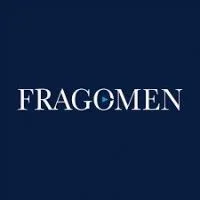- within Insurance and Family and Matrimonial topic(s)
Spain's audio-visual sector has experienced significant growth and transformation in recent years, becoming a dynamic and influential part of the country's economy to become a global leader in the industry.
The sector covers all media, except the press, such as film and television productions, animation, video games, eSports, advertising, visual effects (VFX), video and various on-demand services such as VOD and many more.
To boost this growth and attract foreign investment, the Spanish government implemented a series of strategic measures. These include attractive tax incentives for film and television productions, streamlined administrative processes for international companies, and investments in state-of-the-art production facilities. Additionally, the government has launched global promotional campaigns to showcase Spain's diverse locations, skilled workforce, and production capabilities.
International talent plays a crucial role in the growth and dynamism of the sector. Initiatives such as the Spain Audio-visual Hub launched in 2021, set the objective to increase international productions by 30% by 2025, at the same time emphasizing the need for foreign investment and talent. Moreover, several international companies have set up major production facilities in Spain, further attracting top-tier global talent and fostering innovation.
In 2021, the Spanish government approved new guidelines that simplify the entry and stay of foreign professionals in the audio-visual sector. This initiative was part of the plan to transform Spain into a "hub for the audio-visual sector in Europe."
This blog provides an overview of how to take advantage of simplified procedures for the industry to bring international talent to Spain.
Immigration Solutions for Foreign Talent
Given the objectives set out by the Spanish government, the law updated in 2021 introduced more agile immigration procedures, understanding that the audio-visual sector often has very short deadlines for hiring or transferring foreign professionals from abroad to Spain.
The main goal of this measure was to attract foreign talent to the audio-visual sector and allow the exchange of talent, skills, and experience. The new regulations are designed to be:
- Agile: Responsive to the sector's needs.
- Flexible: Adaptive to different project types and requirements.
- Simple: Proactive i
Types of Visas and Permits
Non-EU professionals who are working in the audio-visual sector such as directors, producers, actors, screenwriters, cinematographers, camera operators, technicians but also game designers, developers, testers, and many more can take advantage of the improved procedures.
They no longer require complex work authorisation to work in Spain and can follow simplified processes. These changes introduce three major options depending on the length of their stay in Spain.
- Stays of up to 90 days
- For short visits, audio-visual professionals can work in Spain without needing a work permit. This is great for quick projects like filming a scene, photography shoots, attending a festival as a jury member, or brief instructional workshops.
- However, those third-country nationals who need a Schengen visa should apply for one before entering Spain.
- Stays Between 91 and 180 days
- For mid-length stays, a special visa allows work and stays for up to 180 days. Perfect for longer projects like a full-length movie production, developing the next season of a TV series, an extended music tour, or shooting a major ad campaign across multiple cities.
- Stays more than 180 days
- For long-term stays, a dedicated residence permit is made available as a single permit which covers both living and working in Spain. It is ideal for long-term projects or for professionals working on multiple tasks over an extended time, such as a multi-year video game development cycle, working as a resident producer overseeing Spanish content, or an ambitious animation film. The residence authorization provided will have a validity equal to the duration of the contract or the transfer to Spain. The maximum duration is two years, extendable for periods of two years as long as the conditions that generated the right are maintained.
It is worth noting that the law also covers relevant visas and permits for family members of professionals in this sector. If the artist or professional is a minor, they can enter and remain in Spain with their parents or those who exercise.
When following either of the above options, the professional must document their relationship with the company that either hires or transfers them to Spain. Additionally, the company needs to confirm that they are part of the production project in the audio-visual sector or artistic activity before the public or intended for recording of any kind for broadcasting by different mass media.
It is important to highlight that the professional as well as the company must remain compliant with social security and tax obligations. The foreign professional must request a Foreign Identification Number (NIE) and the contracting company must register them with Social Security in situations that are not covered by social security agreements.
The content of this article is intended to provide a general guide to the subject matter. Specialist advice should be sought about your specific circumstances.



